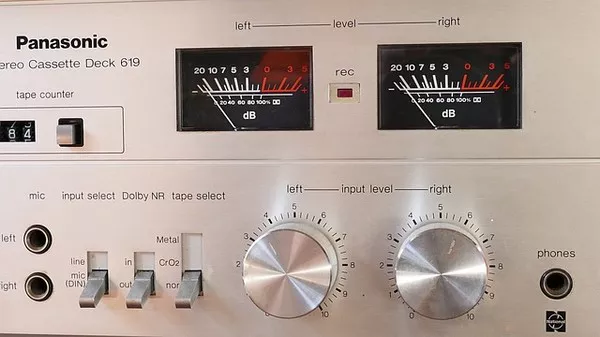Instrumentation amplifiers (IAs) have become indispensable components in modern electronics, offering enhanced precision, common-mode rejection, and versatility in various applications. This article delves into the reasons behind the widespread use of instrumentation amplifiers, their unique features, and the key benefits they offer in different scenarios. By exploring the design principles and applications of IAs, we can better understand their importance in achieving accurate signal conditioning and measurement in complex electronic systems.
Instrumentation amplifiers (IAs) are specialized amplifiers designed to amplify small differential input signals while rejecting common-mode signals. These devices are widely used in applications where high precision, high input impedance, and low noise are essential. They are employed in medical instruments, industrial control systems, data acquisition, and many other areas that demand accurate signal processing and measurement.
In this article, we will delve into the reasons why instrumentation amplifiers are favored over conventional operational amplifiers (op-amps) and explore the unique attributes that make them suitable for various applications. Additionally, we will examine the essential advantages of IAs and their key role in solving signal conditioning challenges.
Enhanced Common-Mode Rejection:
One of the primary reasons instrumentation amplifiers are utilized is their exceptional common-mode rejection capability. Common-mode signals are unwanted signals that appear simultaneously on both input terminals of the amplifier. These signals may originate from noise sources, ground loops, or other external disturbances. By design, IAs suppress common-mode signals while amplifying the differential input signals, resulting in superior signal fidelity.
In contrast, standard op-amps typically have limited common-mode rejection ratios (CMRR), making them unsuitable for applications in noisy environments or those requiring high precision.
Precise Gain Control:
Instrumentation amplifiers offer precise control over gain, enabling customization of amplification levels to match the specific requirements of the application. This flexibility is beneficial in scenarios where small input signals must be amplified to detectable levels without distortion. By adjusting the external resistor network, the gain can be set to accommodate a wide range of input signal amplitudes.
High Input Impedance:
IAs possess high input impedance, which is crucial when dealing with signal sources that have high output impedance. The high input impedance prevents loading effects and ensures minimal signal degradation, maintaining the accuracy and integrity of the measured data.
Low Noise Performance:
Noise can significantly affect the accuracy of measurements in sensitive applications. Instrumentation amplifiers are designed to have low noise characteristics, ensuring the smallest possible interference with the desired signal. This is particularly important in medical equipment, sensor interfaces, and other low-level signal processing applications.
Differential and Single-Ended Inputs:
Another key advantage of IAs is their ability to accept both differential and single-ended inputs. This versatility allows designers to interface with various types of sensors and signal sources efficiently. In cases where single-ended sensors are used, the IA can still provide common-mode rejection by tying one input to a virtual ground.
Applications of Instrumentation Amplifiers:
Biomedical Instrumentation:
In the field of medicine, where precision and reliability are critical, instrumentation amplifiers find wide application. Devices such as ECG (Electrocardiography) monitors, EEG (Electroencephalography) machines, and EMG (Electromyography) devices rely on IAs to amplify weak bio-potential signals while rejecting noise and common-mode interference. This ensures accurate diagnosis and monitoring of patients’ health conditions.
Industrial Automation and Control:
In industrial settings, control systems often deal with weak sensor signals that need to be amplified for monitoring and automation purposes. Instrumentation amplifiers offer an ideal solution for processing such signals and can withstand the harsh electrical and environmental conditions commonly encountered in industrial environments.
Strain Gauges and Load Cells:
In mechanical engineering applications, strain gauges and load cells are used to measure stress, strain, and load variations. Instrumentation amplifiers are extensively used to amplify the small voltage changes produced by these sensors, providing reliable data for structural analysis and safety assessment.
Data Acquisition Systems:
Instrumentation amplifiers play a vital role in data acquisition systems, where accurate measurement of physical parameters like temperature, pressure, and flow rate is required. By conditioning the input signals, IAs ensure that the acquired data is reliable and ready for further processing.
Conclusion:
Instrumentation amplifiers are indispensable tools in modern electronics, providing unparalleled advantages in precision, common-mode rejection, and versatile signal conditioning. The ability to handle differential and single-ended inputs, coupled with their low noise performance, makes them suitable for a diverse range of applications, including biomedical instrumentation, industrial control, and data acquisition systems.
As technology continues to evolve, the demand for accurate signal processing and measurement will only increase, further solidifying the position of instrumentation amplifiers as crucial components in advanced electronic systems. Engineers and designers will continue to rely on IAs to ensure optimal performance and reliable operation in the face of challenging conditions, driving innovation across industries and applications.

